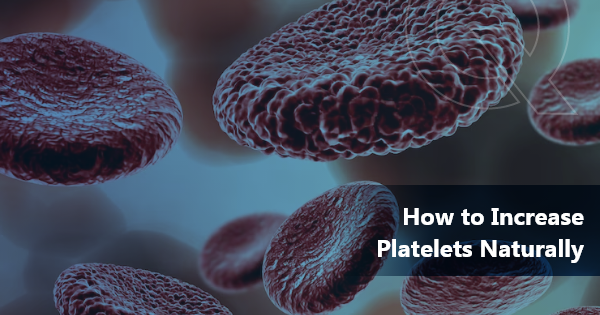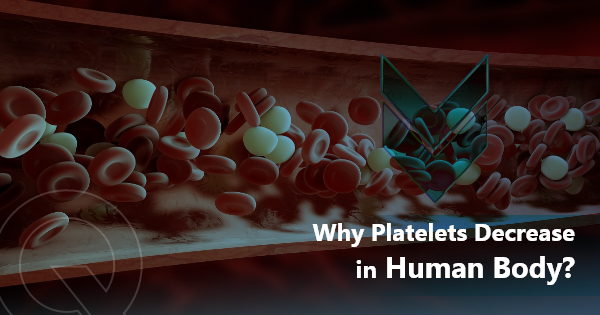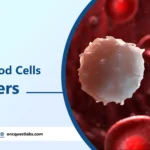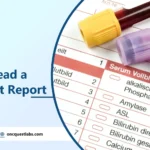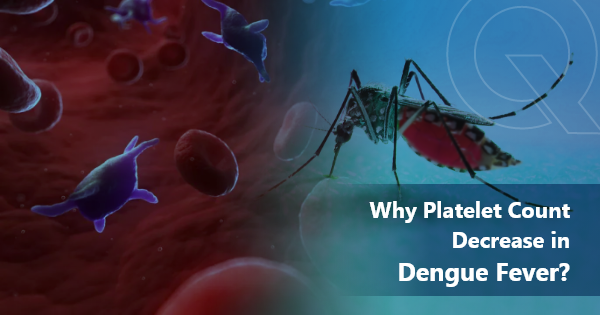Platelets, also known as thrombocytes, are small, colorless cell fragments found in your blood. They are produced in your bone marrow along with red blood cells and white blood cells. Platelets play a crucial role in the blood clotting process and wound healing. Platelets are essential components of your blood responsible for clot formation and wound healing. Maintaining a healthy platelet count is crucial for overall health, as both low and high platelet counts can lead to medical complications. Monitoring platelet levels is a routine part of medical diagnostics, especially in cases of bleeding disorders or certain medical treatments.
Contents
What causes a low platelet count?
A low platelet count, a condition known as thrombocytopenia, can be caused by various factors. Platelets are essential for blood clotting, so a low platelet count can increase the risk of bleeding and bruising. Here are some common causes of low platelet counts:
1. Bone Marrow Disorders: Problems with the bone marrow can lead to reduced platelet production. This includes conditions like aplastic anemia, myelodysplastic syndromes, and leukemia.
2. Viral Infections: Certain viral infections, such as hepatitis C, HIV, and Epstein-Barr virus, can affect the bone marrow’s ability to produce platelets.
3. Autoimmune Disorders: In autoimmune disorders like immune thrombocytopenic purpura (ITP), the immune system mistakenly attacks and destroys platelets, leading to a low platelet count.
4. Medications: Some medications, including certain antibiotics, diuretics, and chemotherapy drugs, can suppress platelet production or cause immune-mediated destruction of platelets.
5. Vitamin Deficiencies: Deficiencies in vitamins like vitamin B12 and folate can affect the production of platelets in the bone marrow.
6. Alcohol Abuse: Excessive alcohol consumption can interfere with platelet production and function, leading to thrombocytopenia.
7. Inherited Disorders: Rare inherited conditions, such as Wiskott-Aldrich syndrome and May-Hegglin anomaly, can lead to low platelet counts.
8. Chemotherapy and Radiation Therapy: Cancer treatments like chemotherapy and radiation therapy can temporarily suppress bone marrow function, resulting in a decrease in platelet counts.
9. Heparin-Induced Thrombocytopenia (HIT): Heparin, an anticoagulant medication, can sometimes lead to a condition called HIT, in which the immune system attacks platelets, causing a drop in their numbers.
10. Infections and Sepsis: Serious infections and sepsis can lead to decreased platelet production or increased platelet destruction.
11. Liver Disease: Liver diseases, such as cirrhosis, can affect the production of proteins necessary for normal platelet function, leading to a low platelet count.
12. Pregnancy: Some pregnant women may experience a mild drop in platelet count due to changes in their blood volume, but this is generally not a cause for concern unless it becomes severe.
How to increase platelets quickly?
1. Consume more leafy vegetables: Leafy greens are rich in vitamin K, which aids in blood clotting and supports platelet production.
2. Include fatty fish in your diet: Omega-3 fatty acids found in fatty fish help reduce inflammation and maintain a healthy circulatory system.
3. Eat foods high in folate: Beans and lentils, among other foods, contain folate, which is essential for proper red blood cell formation and platelet health.
4. Limit alcohol intake: Excessive alcohol consumption can suppress platelet production, so it’s crucial to avoid it.
5. Enjoy citrus fruits: Citrus fruits, packed with vitamin C, enhance platelet function and overall blood health.
6. Incorporate iron-rich foods: Lean meats and legumes provide iron, helping prevent anemia, which can lead to low platelet levels.
7. Consult a healthcare provider about chlorophyll supplements: If considering chlorophyll supplements, seek guidance from a healthcare professional.
8. Avoid vitamin E and fish oil supplements: These supplements can sometimes interfere with platelet function, so it’s best to refrain from them.
9. Emphasize a balanced, nutrient-rich diet: Overall, maintaining a well-balanced diet is essential for supporting your platelet count and overall blood health.
What food raises platelets?
The best foods to increase platelet levels are those rich in essential nutrients that support platelet production and function. Leafy green vegetables like spinach and kale are excellent choices, as they are packed with vitamin K, a key player in blood clotting. Citrus fruits, such as oranges and grapefruits, provide a boost of vitamin C, which aids in platelet production. Zinc, an essential mineral for platelet function, can be found in foods like pumpkin seeds. Papaya is known for containing papain, an enzyme that may help increase platelet counts. Lastly, beetroot is recognized for its ability to stimulate platelet production due to its high folate content. By including these foods in your diet, you can naturally support your platelet levels and overall health.
1.Milk is commonly acknowledged for its protein and calcium content, supporting bone and muscle health.
2.Incorporating green leafy vegetables into your diet is a nutritious and beneficial choice.
3.Extracts derived from papaya leaves may offer various health advantages.
4.Pomegranates are a fruit associated with potential health benefits.
5.Pumpkins are a nutrient-dense food that contributes to overall well-being.
6.Wheatgrass is often promoted for its nutritional value as a plant-based food.
Frequently asked Questions
Q1: How can I increase my platelet count naturally?
A1: You can boost your platelet count naturally through dietary and lifestyle changes. Here are some tips:
– Eat more leafy vegetables rich in vitamin K.
– Include fatty fish for omega-3 fatty acids.
– Consume foods high in folate like beans and lentils.
– Limit alcohol intake.
– Enjoy citrus fruits for vitamin C.
– Incorporate iron-rich foods like lean meats and legumes.
– Consult a healthcare provider before trying chlorophyll supplements.
– Avoid vitamin E and fish oil supplements.
Q2: Are there specific foods that help increase platelets?
A2: Yes, certain foods can support platelet production and blood health. Leafy greens, fatty fish, beans, lentils, citrus fruits, and iron-rich foods are beneficial for increasing platelets naturally.
Q3: How long does it take to see an increase in platelet count with dietary changes?
A3: The time it takes to see an increase in platelet count can vary from person to person. It may take a few weeks to several months of consistently following a platelet-boosting diet to notice significant changes. It’s essential to be patient and maintain a healthy lifestyle.
Q4: Can herbs and supplements help increase platelets?
A4: Some herbs and supplements, like papaya leaf extract, may have potential benefits for platelet count. However, it’s crucial to consult a healthcare provider before using them, as their effectiveness and safety can vary.
Q5: What lifestyle changes can support platelet production?
A5: Besides dietary changes, lifestyle adjustments like getting regular exercise, managing stress, staying hydrated, and getting enough rest can also support platelet production and overall blood health.
Q6: When should I seek medical attention for low platelet count?
A6: If you suspect you have a low platelet count or experience symptoms like easy bruising, prolonged bleeding, or frequent nosebleeds, it’s important to consult a healthcare professional for proper evaluation and guidance.
Q7: Can increasing platelets naturally replace medical treatment for platelet disorders?
A7: Natural methods to increase platelets can complement medical treatment but should not replace it. If you have a platelet disorder or a severe drop in platelet count, consult a healthcare provider for appropriate medical intervention.
Q8: Are there any foods to avoid for low platelet count?
A8: While there are specific foods to emphasize, like those mentioned earlier, it’s also wise to avoid excessive alcohol consumption and certain supplements, such as vitamin E and fish oil, which can sometimes affect platelet function negatively.
Remember that individual responses to dietary changes may vary, so consulting a healthcare provider for personalized advice is essential for managing low platelet counts effectively.

